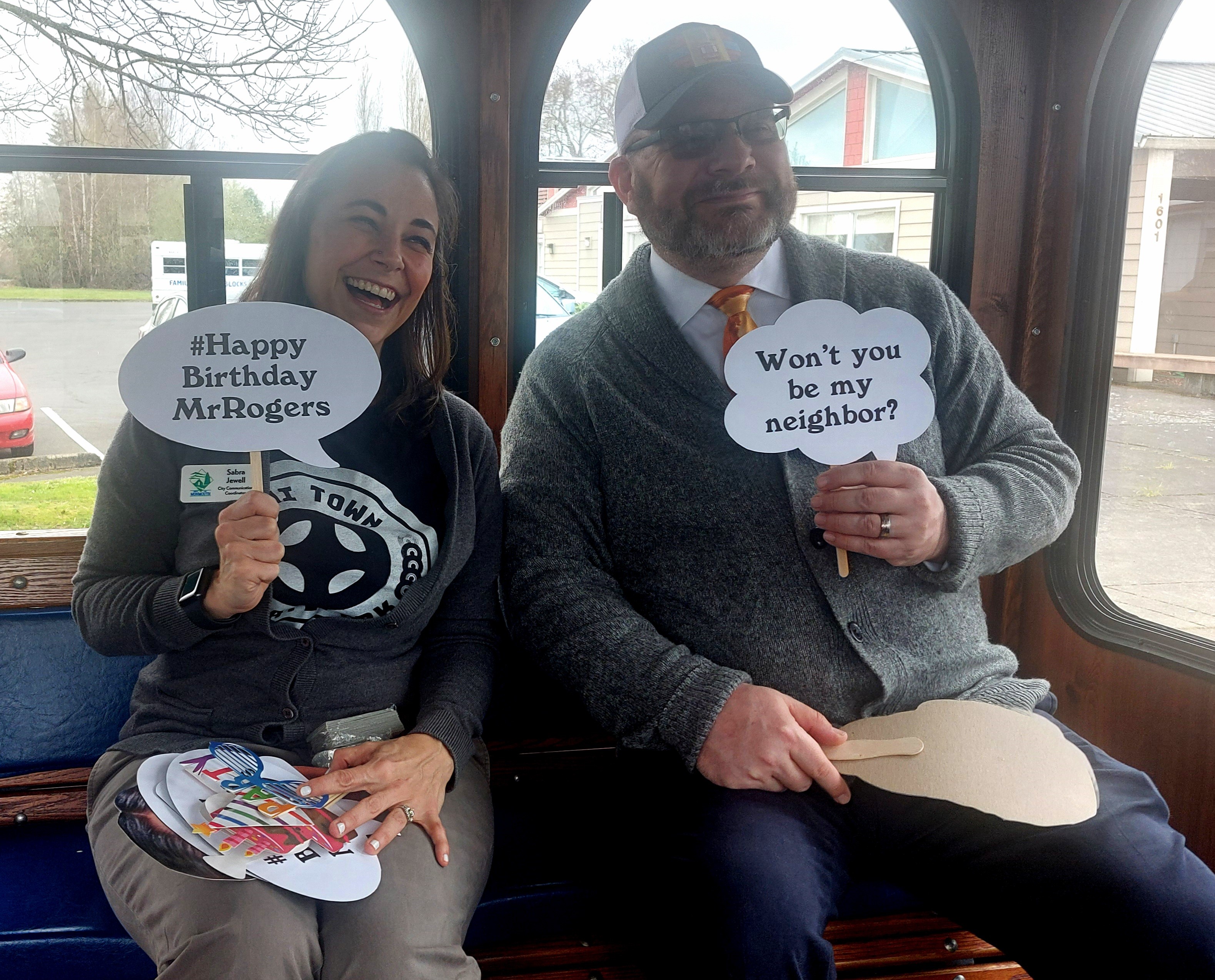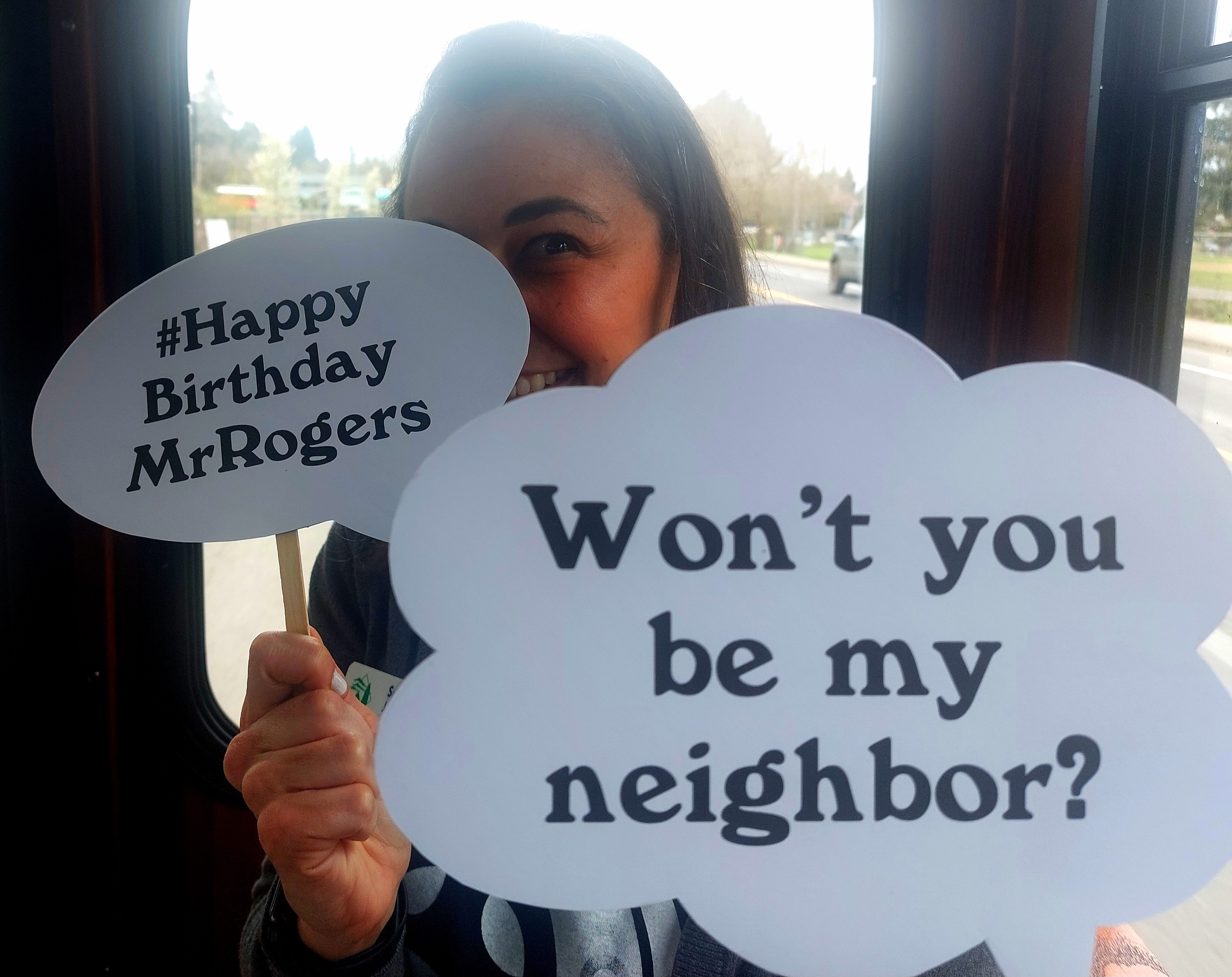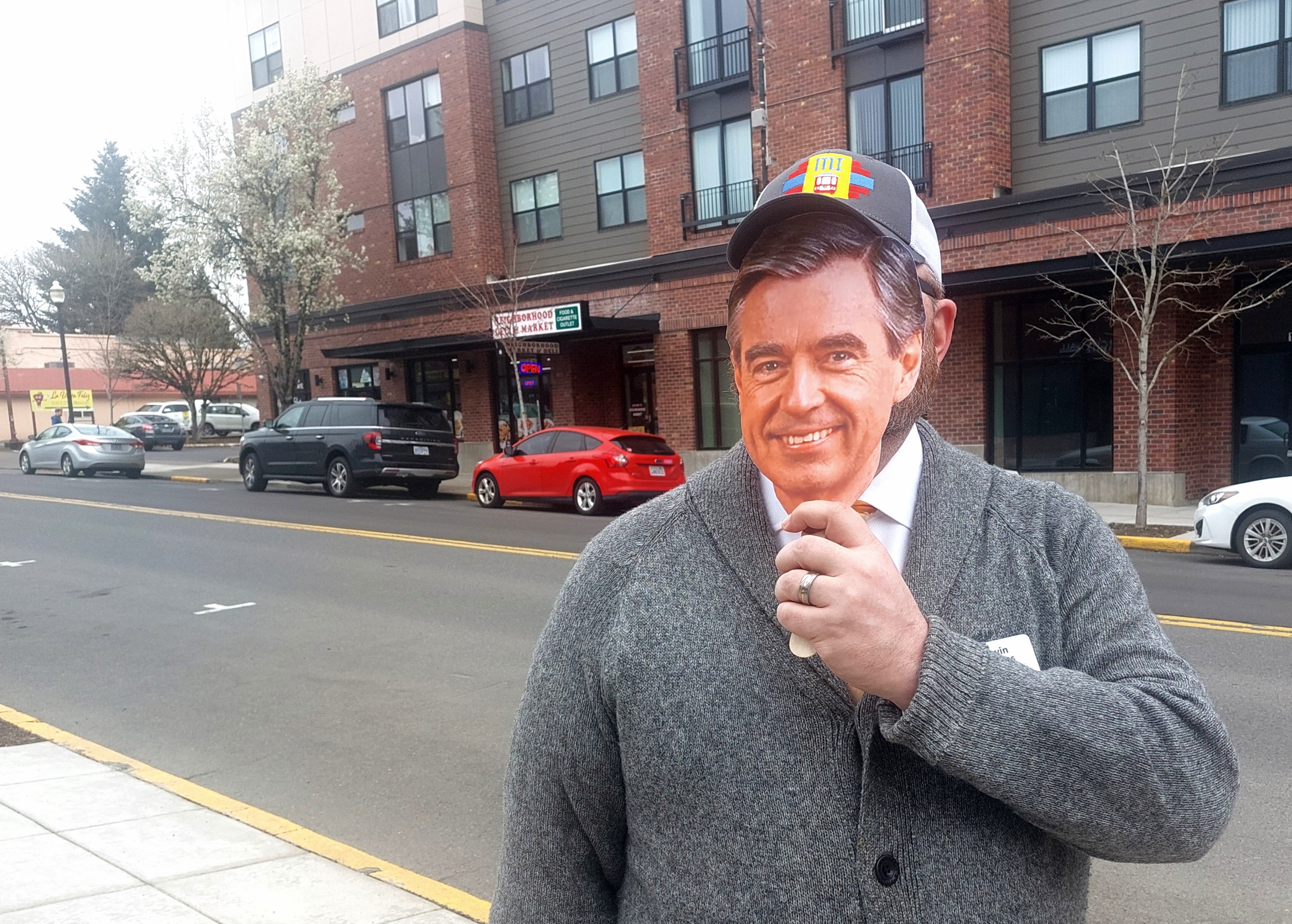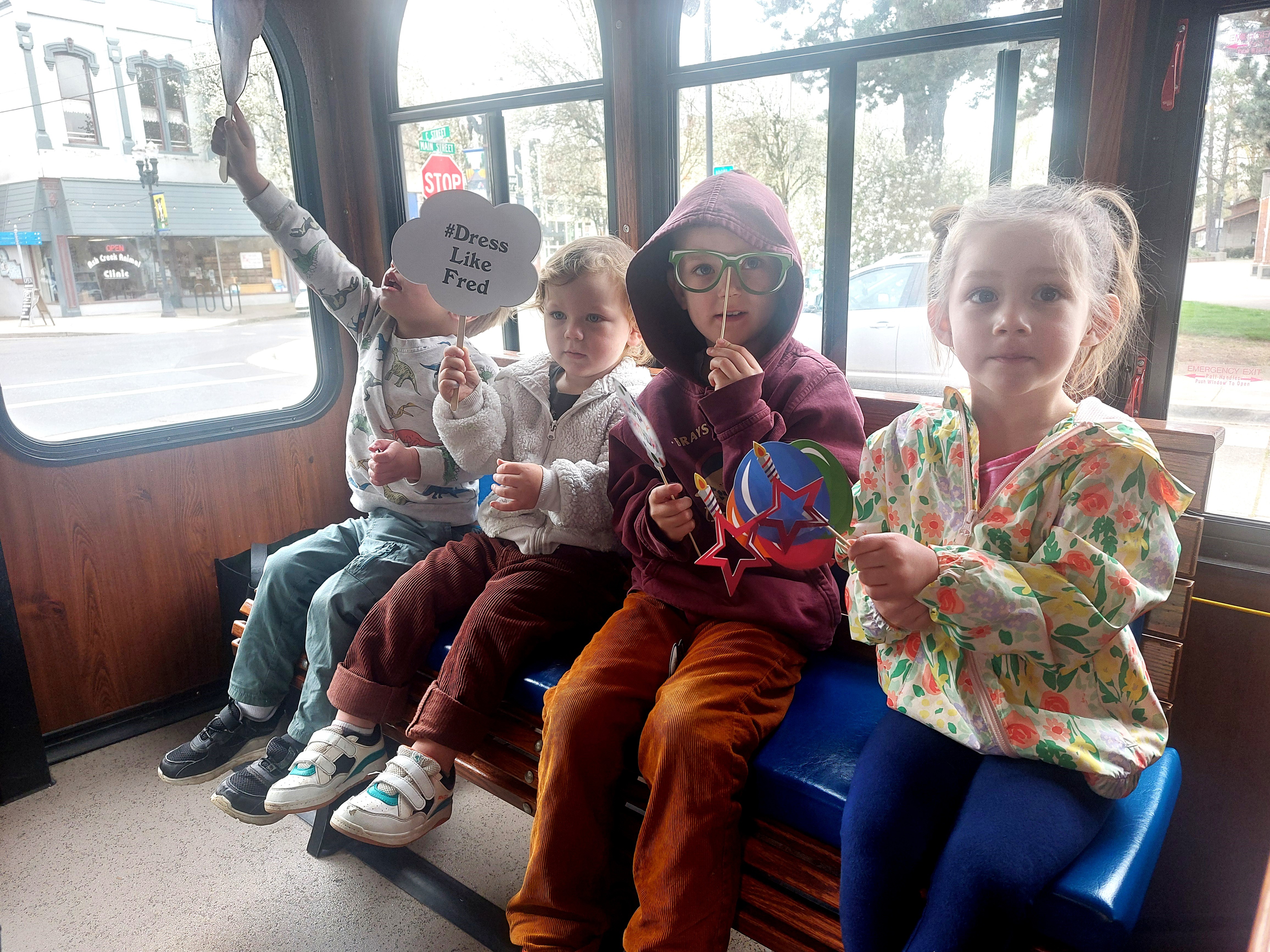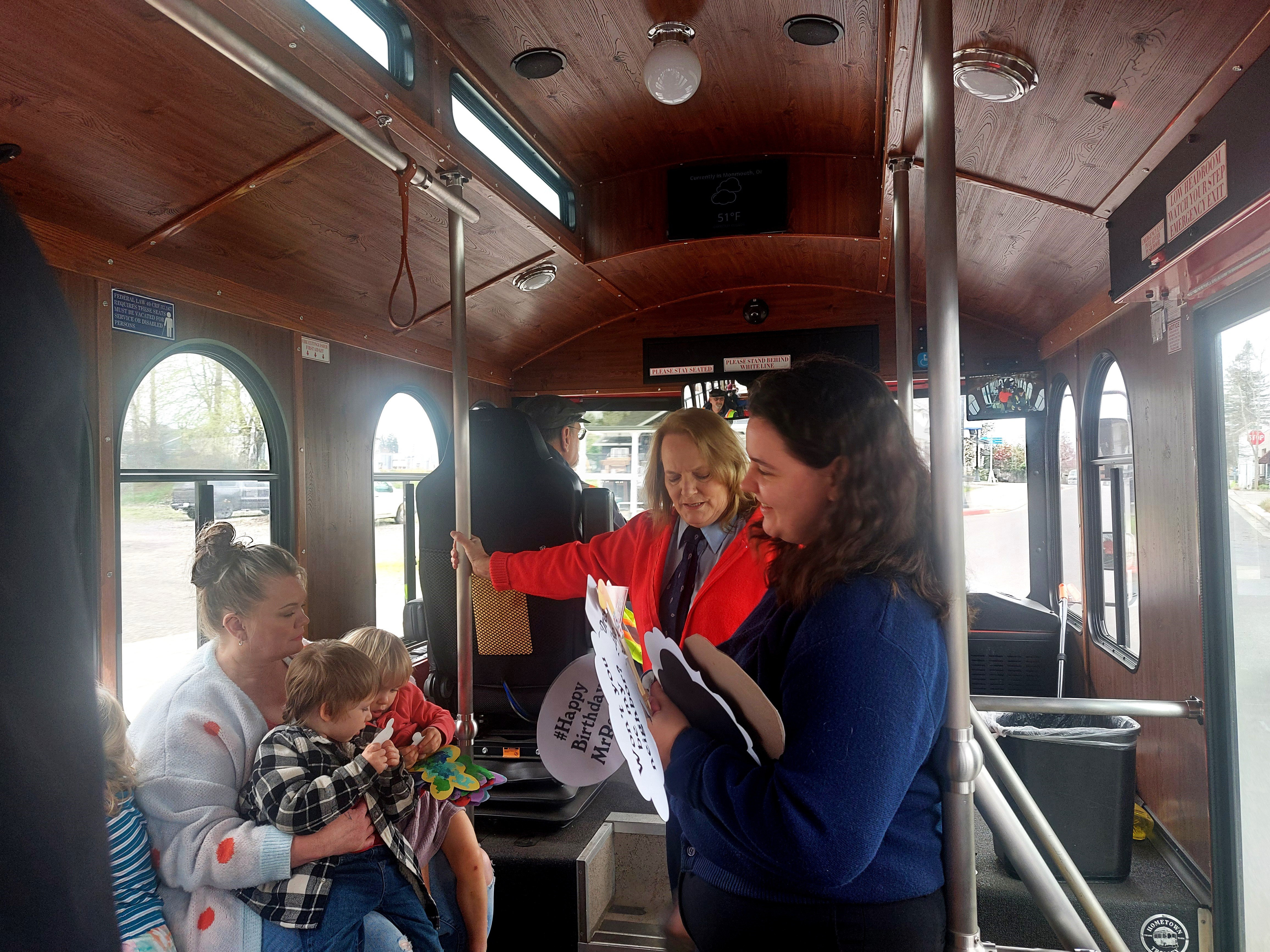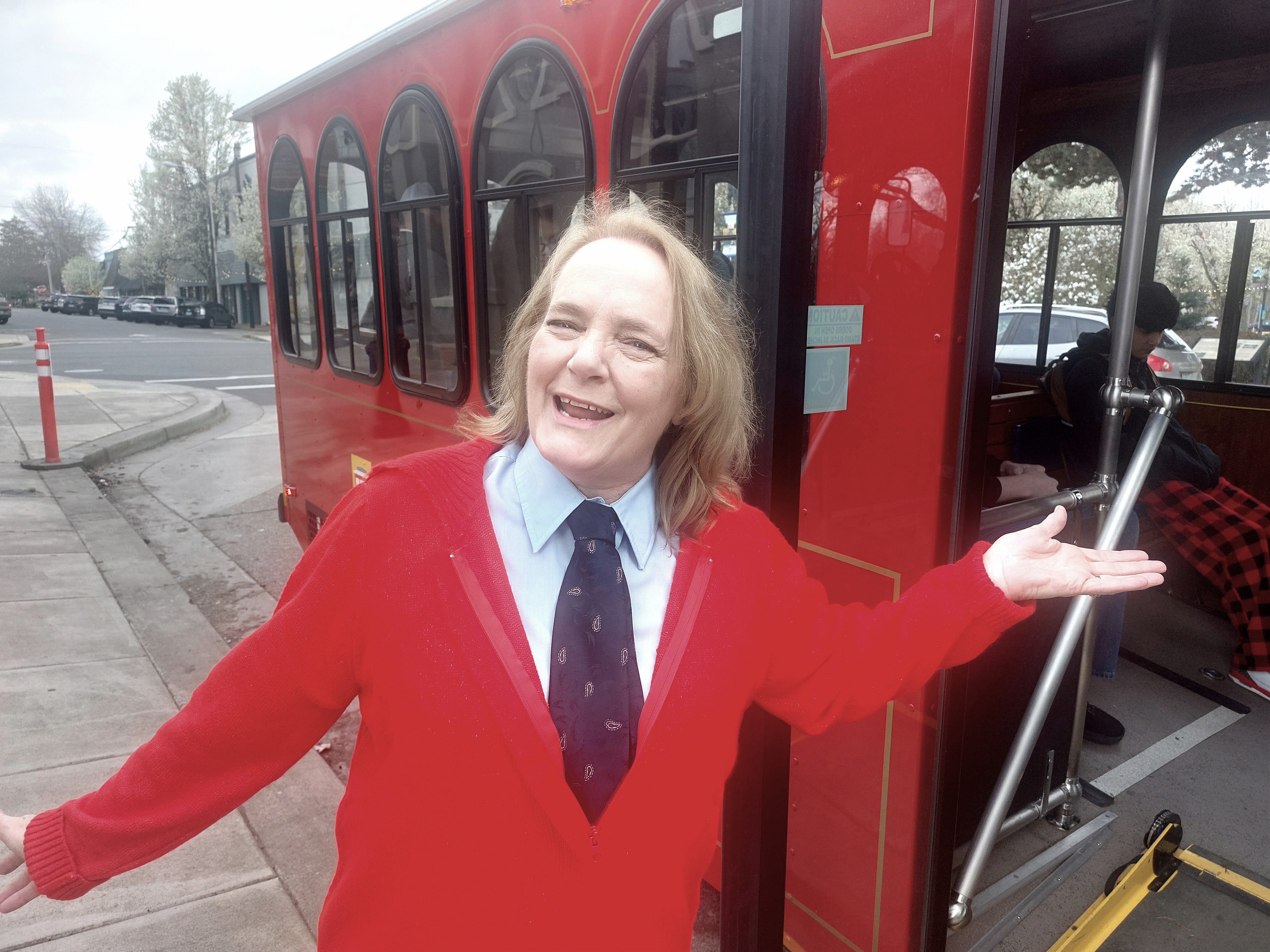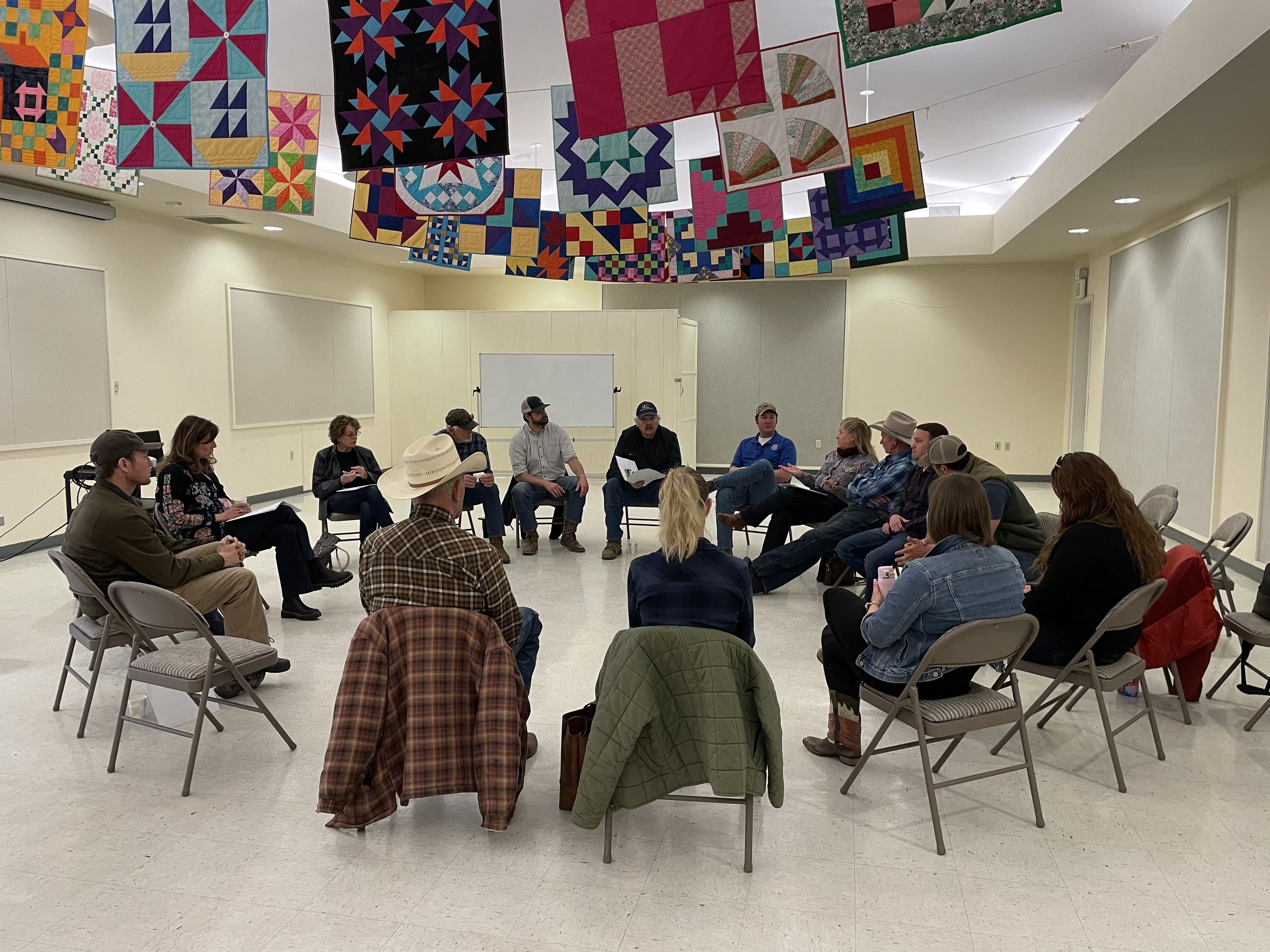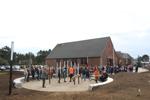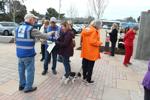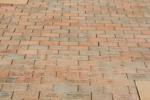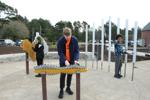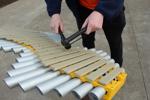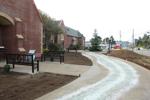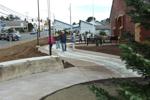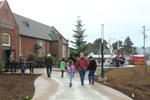Oregon Outback Dark Sky Network takes home the Governor’s Award for their work to certify the Oregon Outback as the world’s largest Dark Sky Sanctuary

On Monday, March 11, 2024, the Oregon Tourism Commission (dba Travel Oregon) announced the recipients of the 2023 Oregon Travel and Tourism Industry Achievement Awards at the 2024 Oregon Governor’s Conference on Tourism at the Salem Convention Center. More than 500 tourism industry professionals gathered for the event to share learnings and align to ensure not only the delivery of exceptional visitor experiences, but that tourism improves quality of life for residents, advances equity, respects the diversity of ecosystems, cultures and places of Oregon and strengthens economic resilience for communities around the state. Hosted by Travel Oregon in partnership with Travel Salem and Willamette Valley Visitors Association, this year’s theme, “Stewarding Oregon’s Future,” calls upon attendees to collectively shape a sustainable visitor economy.
The Governor’s Award: Oregon Outback Dark Sky Network
The Governor’s Award represents the culmination of our industry’s deep appreciation for the long-time service and accomplishments of an individual or individuals who have enhanced the Oregon visitor experience and elevated the travel and tourism industry. Governor Kotek was in attendance to address the industry and honor the Oregon Outback Dark Sky Network (ODSN) with the 2023 Governor’s Award for their collective work to designate 2.5 million acres of the Oregon Outback as the world’s largest Dark Sky Sanctuary by DarkSky International.
A volunteer grassroots initiative comprised of community members, businesses, local governments, ranchers, state and federal agencies, tribes and Oregon Outback night sky enthusiasts, the Oregon Outback Dark Sky Network came together in support of shared principles resulting in mutual community benefits and the long-term conservation of Oregon’s starry night heritage. The designation—announced yesterday—acknowledges the area’s impressively dark starry nights along with its pristine scenery, rich geological and cultural heritage, diverse recreational opportunities and abundance of public lands.
“Dark Sky tourism is a meaningful and sustainable way to experience a destination while providing positive environmental, cultural and economic benefits to local communities,” said Governor Kotek, who visited the proposed Sanctuary in October, as a part of her commitment to visit all 36 counties in Oregon during her first year in office. “The commitment of the Oregon Outback Dark Sky Network to the protection and stewardship of our starry night skies—and today’s designation of a portion of the Oregon Outback as the world’s largest Dark Sky Sanctuary—is truly inspiring.”
Leadership Award: Rebecca Bond, Albany Visitors Association
The Leadership Award recognizes individuals, DMOs or businesses that champion the value of tourism and whose exemplary vision and commitment help improve visitor experiences in our communities, regions and state, and whose leadership contributes significantly to the recognition and impact of Oregon’s travel and tourism industry. This year, Travel Oregon honors Rebecca Bond, the Executive Director of Albany Visitors Association for her tireless work promoting the City of Albany and ensuring its local tourism businesses thrive. From the Willamette Valley Food Trail to her work on a website that provided up-to-date information for local lodging properties and restaurants during the pandemic, Travel Oregon recognizes Rebecca’s incredible efforts to support Albany as a premiere Oregon destination.
Partnership Award: Travel Southern Oregon Coast
The Partnership Award recognizes that creative partnerships can be an effective way to enhance the visitor experience and promote a region or destination. By leveraging traditional and non-traditional partnerships, organizations and businesses can maximize budget, capacity and skill sets to create an increase in efficiencies and a higher-level aligned outcome. In 2023, Travel Southern Oregon Coast (TSOC) did exactly this during their year-long promotional campaign aimed at raising awareness for Whiskey Run Trails. By bringing together mountain bike influencers, media and passionate riders from across the Pacific Northwest and Northern California, the campaign was a collaborative effort between tourism, cycling and private business partners who rallied around promoting Whiskey Run as the Oregon Coast’s most epic mountain bike (MTB) system.
Diversity, Equity, Accessibility and Inclusion Award: Campfire Hotel
The DEAI Award is presented to a business or destination that has demonstrated leadership in raising awareness or facilitating change to build a more inclusive and welcoming environment for visitors to Oregon. Since opening in 2020, this year’s award winner, Campfire Hotel in Bend, has taken pride (literally) in being a safe and welcoming destination for all. With events like Drag Bingo, celebrations of live music and performances, hosting events and media during Winter PrideFest and much more, visitors and locals alike are encouraged to come and celebrate as they are.
Hospitality Award: Jalét Farrell of Spoke’n Hostel
The Oregon Hospitality Award recognizes a person, company or organization that has made significant contributions to delivering excellence in hospitality for Oregon’s tourism industry. Travel Oregon is thrilled to honor Jalét Farrell of Spoke’n Hostel in Mitchell, Oregon—a beacon of warm welcome and exceptional hospitality and service for cyclists and explorers of rural Eastern Oregon. The Spoke’n Hostel extends its embrace to support large-scale events such as Cycle Oregon while maintaining the same level of warmth and generosity for individual travelers. Jalét Farrell’s unwavering commitment to hospitality has not only elevated the Spoke’n Hostel but also placed Mitchell, a hidden gem in rural Eastern Oregon, prominently on the map of sought-after destinations for travelers seeking genuine warmth and authentic experiences.
Stewardship Award: Nez Perce Wallowa Homeland
The Stewardship Award recognizes an activity, event, project or program that utilizes a stewardship approach to positively impact Oregon’s economy, cultures and natural environment. Travel Oregon is proud to honor the Nez Perce Wallowa Homeland, a nonprofit organization charged with stewarding land that belongs to the original homeland of the Wallowa Band of the Nez Perce. The organization’s small team does impressive work in sustainable agriculture, agritourism and invasive species management with a mission “to deepen the connection between the al’áwa country and all those who care about it” as they “strive to inspire a way of working together as wé·tesne qicxnew̓é·t (caretakers of the earth) to rekindle relationships and welcome people home.”
The Gene Landsmann Gemütlichkeit Award: Jeff Kohnstamm
The Gene Landsmann Gemütlichkeit Award honors an individual of the Oregon Ski Community (Industry/Sport) who embodies the spirit and effect of Gemütlichkeit. A German-language word used to convey the idea of a state or feeling of warmth, friendliness and good cheer. Other qualities encompassed by the term include coziness, quality of life and a sense of belonging and well-being.
You could say that Jeff Kohnstamm has skiing in his blood. He was raised at Timberline Lodge and has been the general manager and operator since 1992 when he assumed the role from his father. He has served on the boards of numerous regional and national ski organizations including as President of the Pacific Northwest Ski Area Association. Jeff ensures the sense of Gemütlichkeit flows freely and plentiful on the mountain, as always.
Oregon Tourism Rising Star Awards
The Rising Star Awards are presented to individuals who are new to the tourism industry within the last five years in which time they have shown exemplary leadership, commitment and passion for Oregon’s tourism industry. This year, Travel Oregon honored seven Rising Stars.
Central Oregon | Brandie & Larry McNamee, Antelope Market
The owners of Antelope Market in rural central Oregon, Brandie and Larry McNamee’s vision is to establish Antelope’s tourism economy in an accessible and sustainable way by rehabilitating the Antelope Market, creating camping and accessible lodging options, and leading an effort to get the small town (population 38) certified as a Dark Sky Community with DarkSky International. Tourism has the potential to be transformative for the under-resourced town and community thanks to Brandie and Larry’s leadership, creativity and resourcefulness.
Oregon Coast | Finn Johnson, Oregon Coast Visitors Association
Finn Johnson, the North Coast Destination Management Coordinator with Oregon Coast Visitors Association, has just completed his first year in Oregon’s tourism industry. In that short time, he helped create and launch a Travel Impact Calculator to measure emissions and suggest ways for travelers to offset the impact of their travel to the coast. He helped create the North Coast Transit plan to lower carbon emissions from day trippers and reduce traffic and parking congestion; connected communities like Gold Beach and Port Orford to major capital for electric vehicle (EV) charging development; and co-wrote a $500,000 federal grant for a transportation feasibility report that could provide equitable and low carbon transportation options for visitors, coastal residents and workforce.
Eastern Oregon | Catie Boucher, Eastern Oregon Visitors Association
In Catie Boucher’s brief but impactful two years as Special Projects Coordinator for Eastern Oregon Visitors Association, she has demonstrated remarkable leadership and commitment to advancing the region’s tourism industry. Catie’s focus on cultural heritage, diversity, equity, inclusion and accessibility initiatives set her apart as the Rising Star for Eastern Oregon. Catie has passionately championed accessibility in tourism, working to ensure that Eastern Oregon becomes a welcoming destination for all. Her tenaciousness around upleveling accessibility and learning from other RDMOs and partners who are doing accessibility work inspired Travel Oregon’s Accessibility Learning Community convenings.
Mt. Hood and Columbia River Gorge | Kent Krumpschmidt, Sasquatch Shuttle
Kent Krumpschmidt is a Rising Star because of his passion for public service and support of inclusive, safe and informed visitor experiences in the Mt. Hood and Columbia River Gorge region. A former Multnomah County Sheriff, Kent founded Sasquatch Shuttle in 2021 to create an accessible and inclusive car-free system for accessing the outdoor recreation opportunities along the Historic Columbia River Highway. Kent is an active member of the CGTA Gorge Car Free Action team and helped create a downloadable guide to the Waterfall Corridor for wheelchair users and visitors with disabilities.
Portland Region | Shatrine Krake, Business Recovery Center for Lake Oswego + West Linn
Shatrine Krake resides in the Portland region and serves as the Director of Business Development and Resources at the Business Recovery Center for Lake Oswego + West Linn. Shatrine’s goal is to reach, impact and support all small businesses and her belief that we are “stronger together” shows in everything she does. Shatrine collaborates with Mt. Hood Territory and other tourism partners on may projects, including the Wander Willamette website, where she incorporated interactive map filters that allow users to locate women-owned, veteran-owned, minority-owned, LGBTQIA2S+, Latinx, BIPOC and AAPI businesses. She also set up two seasonal Wander Willamette programs—a holiday passport and an August dining passport and works tirelessly to secure media for local businesses.
Southern Oregon | Megan Pugh, Illinois Valley Chamber of Commerce
Megan Pugh, the Executive Director of the Illinois Valley Chamber of Commerce, is committed to community-building and has been instrumental in transforming the tourism economy of the Illinois Valley. A champion for both the Destination Ready and Downtown programs, Megan has led local initiatives including Main Street, local signature events and critical collaboration with the Oregon Caves & Chateau. She has successfully fostered collaboration and unity among local businesses, residents and organizations to work toward common goals. Megan’s resourcefulness has been a key driver in implementing innovative solutions for the benefit of the Illinois Valley and specifically Cave Junction through compounding crises including COVID & closures of Highway 199 with wildfires. Her ability to leverage limited resources effectively has not only enhanced the Chamber’s operations but has also created new opportunities for local businesses and individuals.
Willamette Valley | Jessy Fabrizio – Stover, Willamette Valley Visitors Association
Jessy joined Willamette Valley Visitors Association as a RARE AmeriCorps member in 2021 and has shown exemplary growth and development, enthusiasm and dedication to the tourism industry during her short tenure. Jessy has continued to take on more challenges and excel at achieving projects and moving things forward for WVVA, particularly in the arena of global sales and destination development.
2023 Industry Achievement Awards Artist
The 2023 awards were designed by local artist Kris Kirkman using salvaged and locally sourced materials that connect each handcrafted piece with the local environment and community.
This article first appeared on Travel Oregon and is republished here under a Creative Commons license.

